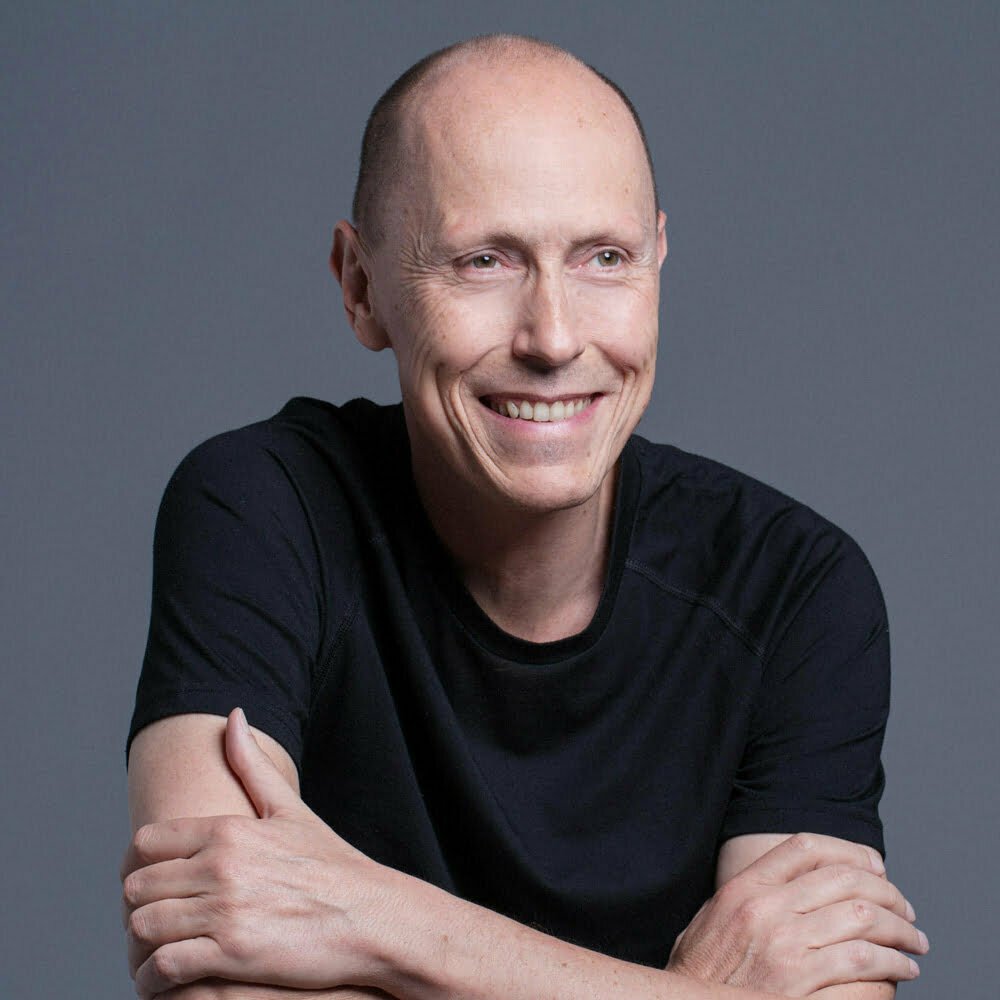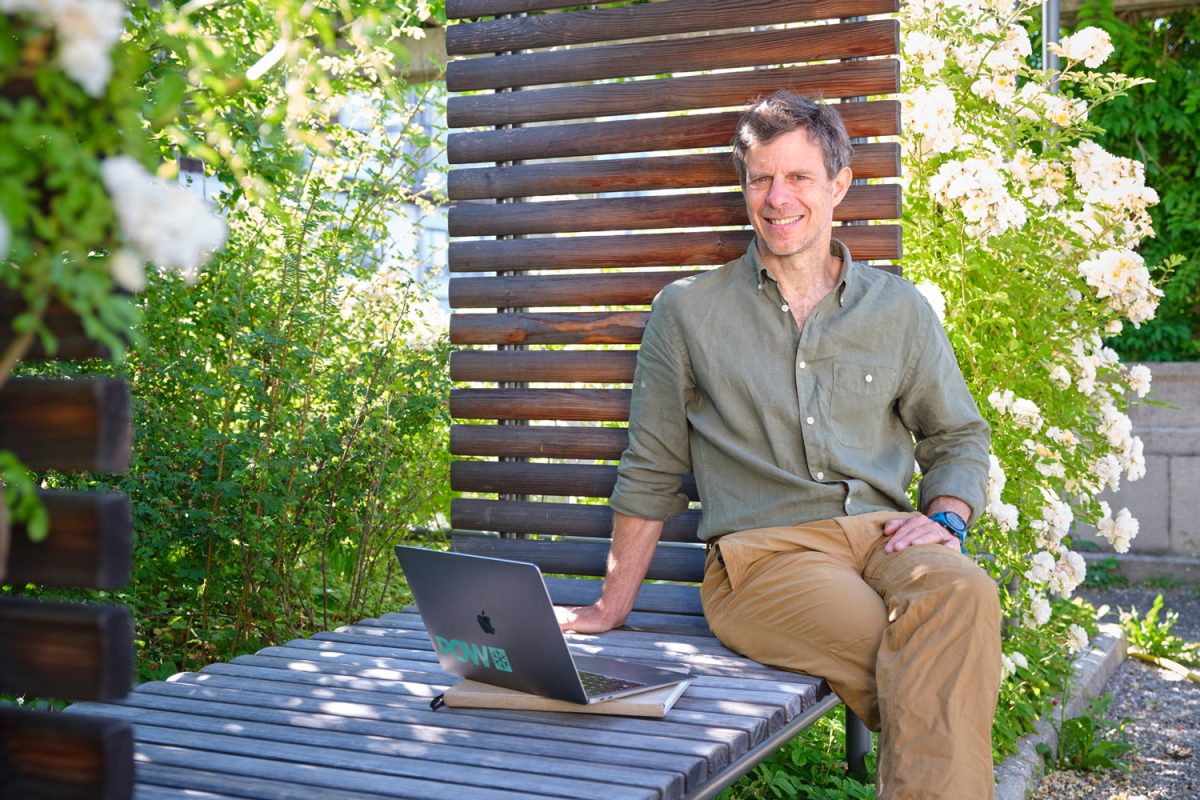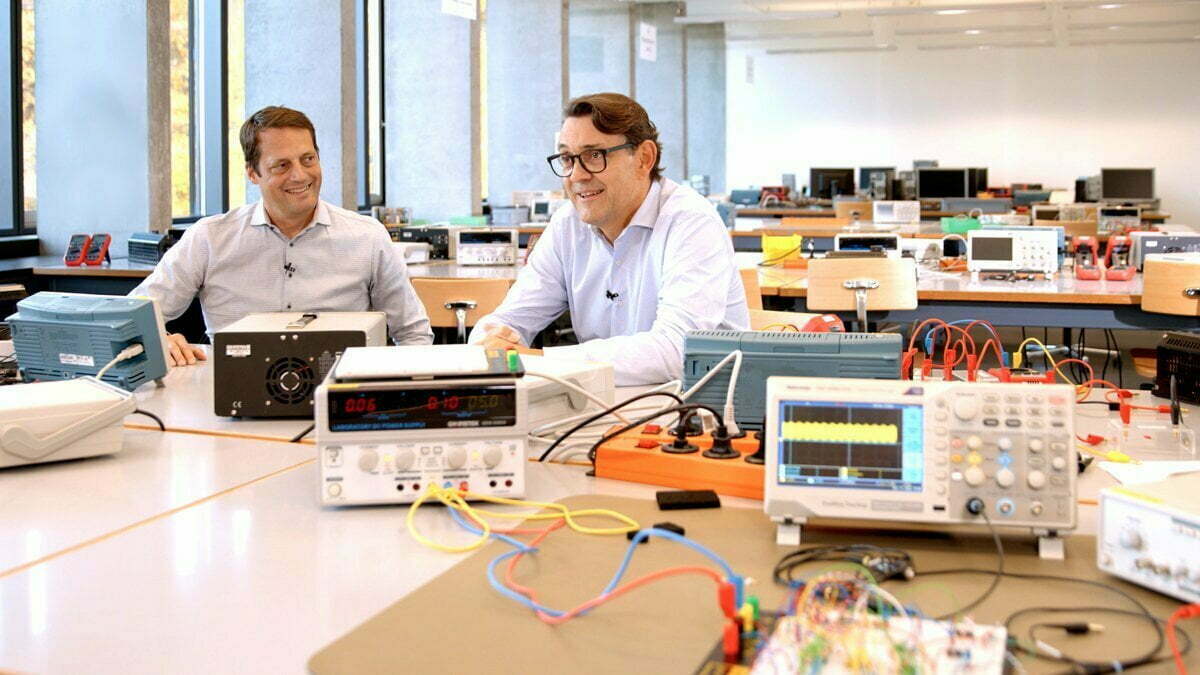Revolution on a plate
Back in 2016, entrepreneur Roger Lienhard’s long-term vision led him to begin investing in start-ups that produce sustainable alternatives to meat and dairy. His aim as an investor and as a donor is to promote research into solutions that combat climate change.

Professionally and personally, the goal you are looking to achieve is nothing less than the transformation of the global food industry. How did that come about?
ROGER LIENHARD – It was a rather circuitous journey. After an apprenticeship in banking, I founded my first company at the age of 19. We imported computers and fax machines. I was soon drawn to advertising and when the internet came along, I set up a business marketing advertising space on newspapers’ online portals. After founding further software and IT-related businesses, I decided, at the age of 45, that
I’d had enough of that area of the business world. I sold my shares and headed to California for a sabbatical. The “can-do” attitude and mindful lifestyle in Los Angeles instantly appealed to me. My daughter came to visit me and, after conversations with her, I decided I wanted to go vegan.
Changing your diet turned you into a visionary investor in sustainable food production?
The change in my diet was triggered by a love of animals. I noticed a gradual improvement in my performance when I was running or doing yoga. The more I found out about food production and livestock farming, the more I learned about the detrimental effect it has on our environment and climate. I was looking for a new role at the same time. I wanted to have a positive impact and give something back to society. I started visiting emerging companies on the West Coast that were working on alternatives to animal protein, for example Beyond Meat and Impossible Foods. They served me their burgers in meeting rooms and assured me that their produce would soon be indistinguishable from meat. Back then, five years ago, that was difficult to believe. But success has proven those pioneers right. Since then, we have invested in over 60 start-ups through my businesses Blue Horizon and Livekindly. Today we are the world’s biggest investor in this field.
In your view, what is the next big thing we can expect to see in this market?
In terms of product categories, alternatives to seafood and chicken are on the rise, as are milk substitutes. In technological terms, plant-based products are ahead of the field at the moment. Fermentation processes for plant-based yoghurt and cheese and lab-cultivated meat are set to make a breakthrough in the next five to eight years, providing technological upscaling is possible.
You also invest in Swiss businesses such as Planted, an ETH Zurich spin-off. What is Planted doing right?
There is a huge demand for chicken worldwide and everyone is working on alternatives at the moment. Planted chicken, based on pea protein, is by far the best currently available on the market, thanks in part to donor support the business received during development. Wherever possible, I sample each product before I invest, and every week 20 new business plans land on my desk, so I’m not short of comparisons.
How do things stand in Switzerland where alternatives to animal protein are concerned?
The choice of products available has improved hugely, but more investment is still needed. A Silicon Valley start-up will quickly find funds for a good product.
In Switzerland it’s still not easy. But the fact that ETH alumnus Lukas Böni and his co-founders at Planted have several successful financing rounds behind them shows that it is possible to find and win over investors here too.
What is your connection with ETH?
Meeting the founders of Planted and learning how their education and research led them to develop their expertise in this field and create a first-class product
made a big impression on me. I very much enjoy being able to work with intrinsically motivated young people who are solving a problem and want to do something for the environment. I would like to see even more support for entrepreneurship at ETH, especially where climate-related innovation is concerned.
You support Professor Anthony Patt’s research as an ETH donor. What motivated you to do that?
I want to help raise awareness of the urgency for solutions and draw attention to concrete approaches to combatting climate change. ETH is one of the best universities worldwide. Any facts and figures coming out of this institution hold weight and are recognised internationally.
In your view, what can each and every one of us do to help solve climate change?
Become more conscious consumers, and become a bit more frugal. Changing our personal consumer habits is simple and effective, because at the end of the day, companies will only produce in response to demand. The revolution can begin on your own plate.


